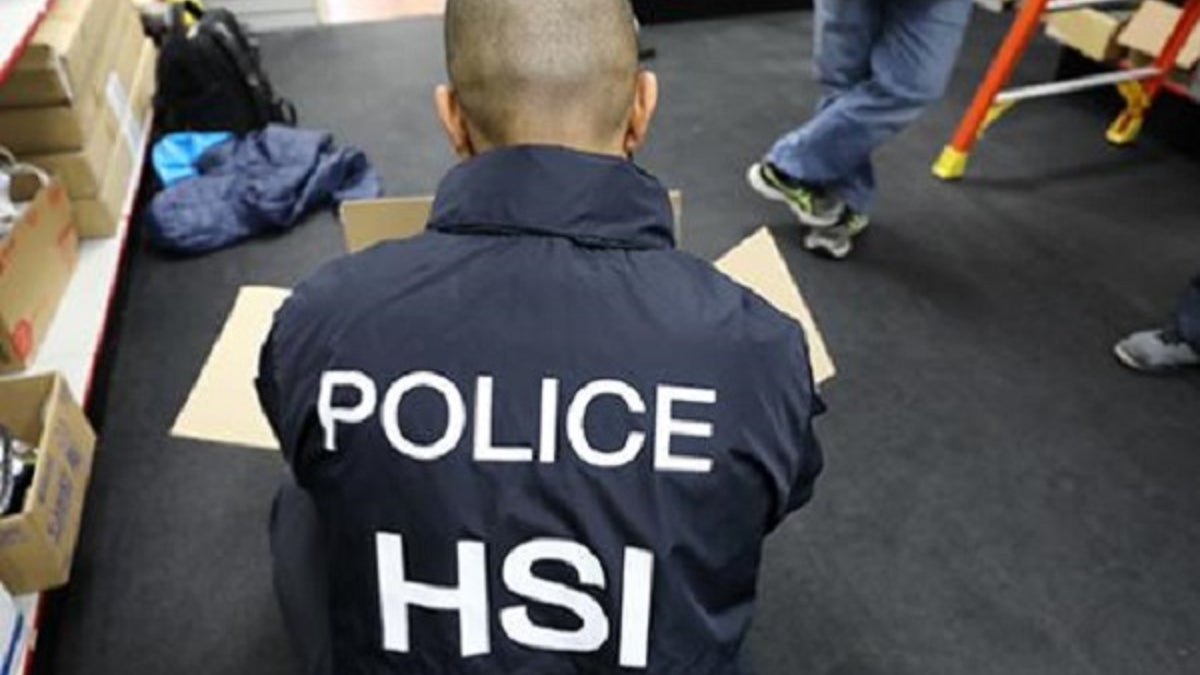
Various agencies have teamed up to crackdown on a black market of bogus sports accessories being sold in the week leading up to the Super Bowl. (ice.gov)
More than $15 million in bogus Super Bowl merchandise and other items has been seized through Operation Team Player, which has also resulted in 65 arrests and 24 convictions, authorities said Tuesday.
In all, nearly 172,000 items were confiscated, representatives of federal law enforcement agencies and the Minneapolis Police Department said at a news conference Tuesday.
“Intellectual property theft is a serious crime, and black-market organizations descend on the Super Bowl and other major sporting events to sell counterfeit goods and substandard merchandise to unsuspecting consumers,” Thomas D. Homan, acting director of U.S. Immigration and Customs Enforcement (ICE) said.
"Black-market organizations descend on the Super Bowl and other major sporting events to sell counterfeit goods and substandard merchandise to unsuspecting consumers.”
“ICE agents are committed to investigating the trafficking of counterfeit goods that wreak havoc on local economies, threaten the health and safety of the American public and fund criminal organizations engaged in other illegal activities,” Homan added.
The year-round Operation Team Player was a joint operation involving the NFL, ICE, the FBI, Customs and Border Protection and the Minneapolis Police Department (MPD).
The operation led to the seizure of fake jerseys, hats, cell-phone paraphernalia as well as thousands of other items that were intended to be sold to customers.
“We’ve been at major mailing facilities, we’ve been intersecting packages, we’ve been seizing counterfeit goods,” Matthew Bourke, spokesman for the National Intellectual Property Rights Center, told Fox 9 in Minneapolis-St. Paul. “We have targeting capabilities; we know where it’s coming from. We know who’s getting it.”
Operation Team Player was set up after last year’s Super Bowl. Since then, there has been a 16 percent increase in arrests. Major sporting leagues have teamed up with the HSI-led Intellectual Property Rights Coordination Center (IPR) to combat criminal counterfeiting and piracy.
"(I)llicit trade carries consequences that linger far after the fourth quarter," said David Hirschmann, president and CEO of the U.S. Chamber’s Global Innovation Policy Center. "Counterfeiters sell substandard products, jeopardize consumers’ personal and financial information, and undermine American jobs and innovation.
"Fans deserve the real deal," he added. "Only purchase known brands from known sellers that bear the official holographic marks of authenticity.”
